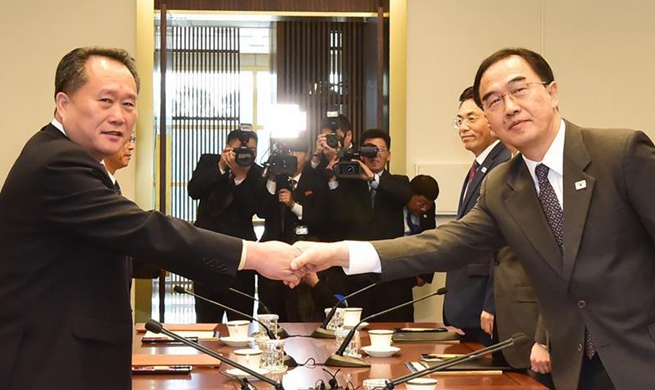NAIROBI, Oct. 15 (Xinhua) -- The World Bank will rally behind Kenya's ambitious blue print on expanding access to affordable homes as a means to spark economic vitality, fight extreme poverty and create new jobs, senior officials said on Monday.
Carlos Felipe Jaramillo, the World Bank's Kenya Country Director, said that multilateral lenders are committed to help the East Africa's largest economy tackle a housing shortfall that bodes ill for sustainable development and cohesion.
"We are ready to assist the Kenyan government deliver on its affordable housing agenda. Targeted incentives are required to promote investments in homes for the low income bracket," Jaramillo said.
He spoke during the second edition of urban dialogue forum organized by the World Bank to explore innovative measures that are required to expand access to affordable homes in the rapidly growing Kenyan cities.
Senior government officials, county executives, investors and representatives of grassroots organizations who attended the forum agreed that Kenya can bank on the prevailing macro-economic stability and renewed investor confidence to develop new homes for low income earners in urban centres.
Jaramillo said that implementation of the government's big four agenda on affordable housing is key to hasten urban renewal and spark economic prosperity in Kenya.
"The housing agenda is a timely intervention and a catalyst for growth. The government should therefore create conducive environment to facilitate deployment of green technologies that poorer segment of the population can use to build homes," said Jaramillo.
James Macharia, Kenya's cabinet secretary for housing and urban development said the government intends to develop 500,000 homes by 2022 through innovative financing.
"Delivering affordable homes is a top priority in government and realization of this objective will depend heavily on domestic resource mobilization," said Macharia.
He said the government will cater for the cost of land and supportive infrastructure like roads, power, water and sewerage systems to incentivize local and foreign investors to build homes for the poor.
"Other incentives include a seamless approval process to cut down on time and resources to be spent by investors in housing sector," said Macharia.
Kenya has an annual demand of 250,000 housing units but has only been developing 50,000 units thanks to financing and regulatory hurdles.
Charles Hinga, the principal secretary in the state department of housing and urban development, said that tax incentives coupled with adoption of new building technologies is key expand access to affordable shelter.
"We are leveraging on new technologies and a range of innovative financing schemes to develop quality homes for the urban poor," said Hinga.
Sameh Naguib Wahba, the World Bank's Global Director for Urban and Territorial Development, said that access to affordable homes will boost health and education outcomes as well as gender parity in Kenya.













